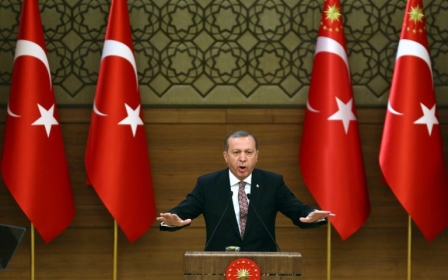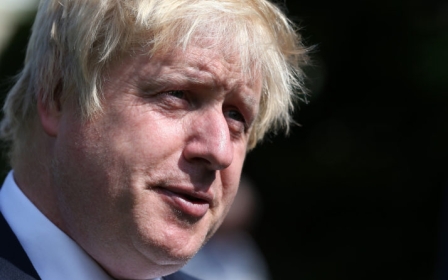12 Kurdish and Alevi TV stations closed in Turkey, as crackdown extended

A dozen Kurdish and Alevi TV channels were closed on Wednesday evening by the Turkish government with the crackdown following the failed 15 July coup attempt showing no sign of abating.
The channels closed include Zarok TV, Turkey's first Kurdish-language children's channel. The broadcasts were stopped on Wednesday night and have been removed from the TURKSAT satellite, an official in the Kurdish-majority southeastern city of Diyarbakir told AFP. Alevism is a heterodox sect of Shia Islam, whose adherents are thought to compose as much as a fifth of Turkey’s population and are split between ethnic Turks and Kurds.
Four channels were entirely in the Kurdish language, three more were partly in Kurdish and the three others were in Turkish but considered pro-Kurd.
In a statement, left-wing Hayatin Sesi TV said that the blacking out of their channel had followed months of harassment by the Turkish government, including fines and administrative warnings.
"Hayatin Sesi was founded 10 years ago to be the voice of the working people, of secular forces, of peace and of all oppressed and exploited peoples," said the channel in a statement released on Wednesday evening.
"With its actions the AKP government reveals its animosity towards this voice, and states explicitly that no media outlet will be allowed unless they toe the line."
Two radio stations broadcasting in Turkish and Kurdish were also closed down.
The Turkish government has engaged in a massive operation to purportedly cleanse various institutions and organisations of supporters of the US-based cleric Fethullah Gulen, whom they accuse of having masterminded the coup attempt.
However, the arrests and sackings have reached much further than Gulen supporters, with Kurds, leftists and members of the minority Alevi sect all facing the brunt of the crackdown. The state of emergency imposed after the coup has also been used to suppress demonstrations by environmental and labour activists.
On Thursday, all venues serving alcohol in the province of Yozgat, in central Anatolia, were also shut down by decree, using powers granted to the provincial governor by the state of emergency.
#Breaking: Islamist dictator #Erdogan closed all bars, public houses in #Yozgat #Turkey, alcoholic drink banned #Europe #USA pic.twitter.com/0Dm69NiTIC
— NiNoVa (@ninoveh) September 29, 2016
Turkish President Recep Tayyip Erdogan warned on Thursday that the state of emergency, imposed after the July coup, could be extended beyond on October, when it is due to expire.
"During our National Security Council meeting yesterday we saw that three months is not enough to clear the system of this terror," he said, speaking at the presidential palace.
Erdogan also hit out foreign governments for criticising the draconian measures taken following the coup stating that "nobody should try and set us a timetable or try to direct us."
Going off on another tangent, he also slammed the 1924 Treaty of Lausanne which led to the creation of the modern Republic of Turkey.
"We gave away Aegean islands (to Greece)," he said. "Is this victory?"
Justice Minister Bekir Bozdag told NTV television on Wednesday that 70,000 people had been investigated following the coup attempt with 32,000 of them remanded in custody.
Bozdag said that there could be new arrests but gave no indication as to when trials might start.
The trials of tens of thousands of people will be the biggest legal process in Turkey's history and are set to put the system under enormous pressure.
"It is not entirely clear how the trials will be carried out," Bozdag acknowledged.
Additional reporting by AFP
Stay informed with MEE's newsletters
Sign up to get the latest alerts, insights and analysis, starting with Turkey Unpacked
Middle East Eye delivers independent and unrivalled coverage and analysis of the Middle East, North Africa and beyond. To learn more about republishing this content and the associated fees, please fill out this form. More about MEE can be found here.




